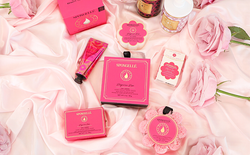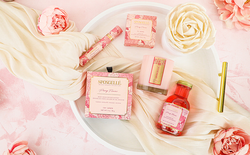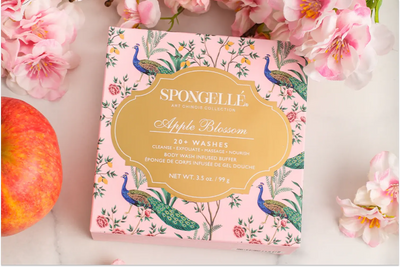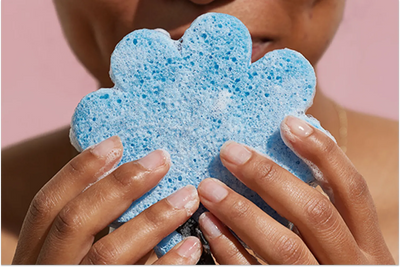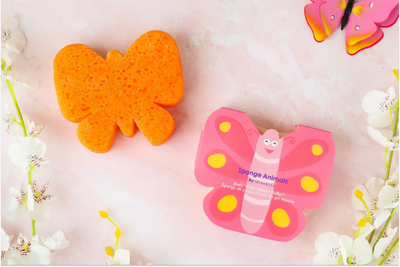Taking a stroll down your local store's skincare aisles looking for a moisturizer can leave your head spinning with the sheer number of selections offered. The moisturizers come packaged in a way that ranges from hardly any adequate description at all to scientific terms and labels that are barely pronounceable, let alone easy to understand. Marketing and branding also make it extremely distracting to look at all the pretty packaging and decide which one would be right for you.
So, when it comes down to ingredients, which is better for you: a water-based moisturizer or an oil-based one?
What Is Moisturizer?
A moisturizer’s primary goal is to stop moisture from escaping the surface of the skin or to make sure the skin is offered a much-needed replenishment of water. In order to rehydrate the top layer of skin cells, moisturizer acts as a drink of water to your skin in order to help plump it up. Typically speaking, most moisturizers have a combination of water and oil to ensure that evaporation of the water doesn’t happen right away.
Making your selection for a moisturizer depends on two main things: your skin type and your personal preference. Let’s discuss some of the choices that are out there and what they might mean for you when trying to narrow down your skincare routine. You can always enlist the help of your dermatologist if you have questions about how to determine what skin type you have and what moisturizer would be most beneficial based on their recommendation.
Water-Based Moisturizers
Water is the main ingredient in a water-based moisturizer. What you may be surprised to know is that even water-based moisturizers may also include oil. This oil is included to make sure water is locked in. If a moisturizer did not have some occlusive emollient, water would evaporate and our skin wouldn’t hold in the moisture the way it is meant to.
Moisturizers that are water-based can actually be in the form of a gel, cream, or lotion. The amount of water included in each product is the main difference between these options. If you are in the market for a consistency that is thicker, then cream would be your best bet. A cream product has less water than the lotion or gel options.
A water-based gel may be the right choice for you if you are seeking out something lightweight and on the thinner side when it comes to texture and consistency. It contains the most water out of the choices. In the middle of a gel or a cream is a water-based lotion, which has less water than gels but more than a cream.
Oil-Based Moisturizers
If you are ever curious if a moisturizer is oil or water-based, look no further than the list of ingredients on the packaging. If the main ingredient is listed as water, it’s a moisturizer that is considered water-based. If you take a look at the list of ingredients and something like almond oil, jojoba oil, or any other oil is listed first, you can safely assume the product is an oil-based moisturizer.
Oil-based moisturizers can come in the form of body or face oil, ointments, body butter, or thick creams. The primary difference in these products is the texture and the amount of oil contained in the product. It’s an oil-based moisturizer if there’s more oil in the product than water. If you have cracked or dry skin, ointments are ideal because they are protectants for damaged skin.
Body butter is not quite as heavy as an ointment but thicker than you would expect a cream to be. Body or face oil can either be a combination of oils or just one.
Is an Oil-Based Moisturizer Better Than a Water-Based One?
It’s common to wonder if water-based or oil-based moisturizer is better overall. The truth is, there is no concrete answer. We are all unique and our skincare routines call for a personalized approach. What may work for one person may not be the right fit for your skin type. Here are some things to keep in mind when trying to determine which moisturizer to add to your routine:
- Keep an open mind and be willing to test a few products before you make a decision on what works best for you. Experimenting with varying ingredients and different brands can help you narrow it down.
- The most expensive brand out there does not mean it’s the best option. It’s important to evaluate ingredients and make sure that your moisturizer is free from harsh chemicals and fragrances.
- Try to limit your bathing routine to five to ten minutes and avoid a water temperature that is extremely hot.
- The best time to apply your moisturizers is while your skin is still damp. The added moisture will help your moisturizer hydrate your skin more deeply.
- Sun protection is also an important aspect of your moisturizing routine and you can absolutely incorporate a moisturizer for both face and body that has an SPF included.
The Importance of Preventing Skin Damage
Issues with your skin can come up if you do not take proper care to keep it hydrated. In order to avoid these skin concerns, you should find a product that helps to keep your skin healthy and balanced. Balanced skin means it’s not too dry and not too oily. In order to take preventative action against skin damage from the sun, an SPF is also a product that is crucial to avoid the sun's harmful rays.
As we age and the skin gets drier, wrinkles can become more visible prematurely if the skin lacks proper hydration. Adding moisture to your skin helps it look plump and feel more firm. We all want to look and feel our best. In order to prevent skin from looking prematurely aged, adding a great moisturizer can assist in keeping wrinkles from making their debut before they need to.
Our skin is exposed to a number of pollutants daily. Having protection on your skin can keep those pollutants from entering your skin. Personal care should not be something we dread or skip. Simply adding a great moisturizer to your skin can offer many lasting benefits.
Moisturizing can:
- Help you feel more self-confident by assisting in reducing fine lines and wrinkles
- Reduce blemishes
- Improve dry skin
- Even out texture and skin tone
- It can help repair your skin
If you are ready to take care of your skin and find a moisturizer you love, Spongellé has an amazing selection of body products that will leave you feeling like a brand new person! We have taken the guesswork out of trying to figure out if a product is paraben-free, vegan-friendly, or cruelty-free. Our products are sure to show your skin the love and hydration it deserves.
Summary
No matter if you have combination, oily, or dry skin, incorporating the right moisturizer in your skincare is crucial, especially as you age. In order to keep our skin healthy, it is important to moisturize every day. Glands that produce oil, which are typically responsible for the healthy look of our skin, tend to create fewer oils as we age. In order to maintain skin health, moisturizing allows the skin to look its best over time.
When you get caught up in your day-to-day life, it’s easy to forget how a two or three minute routine can make all the difference in the world in how you look and feel. Showing up in the world as the best version of yourself is a game-changer. Even if you are a little late to the moisturizing game, it's never too late to start investing in yourself and your skin. As time goes on, one thing you will never regret is taking good care of your skin!
Sources:
Moisturizers: Options for softer skin | Mayo Clinic


